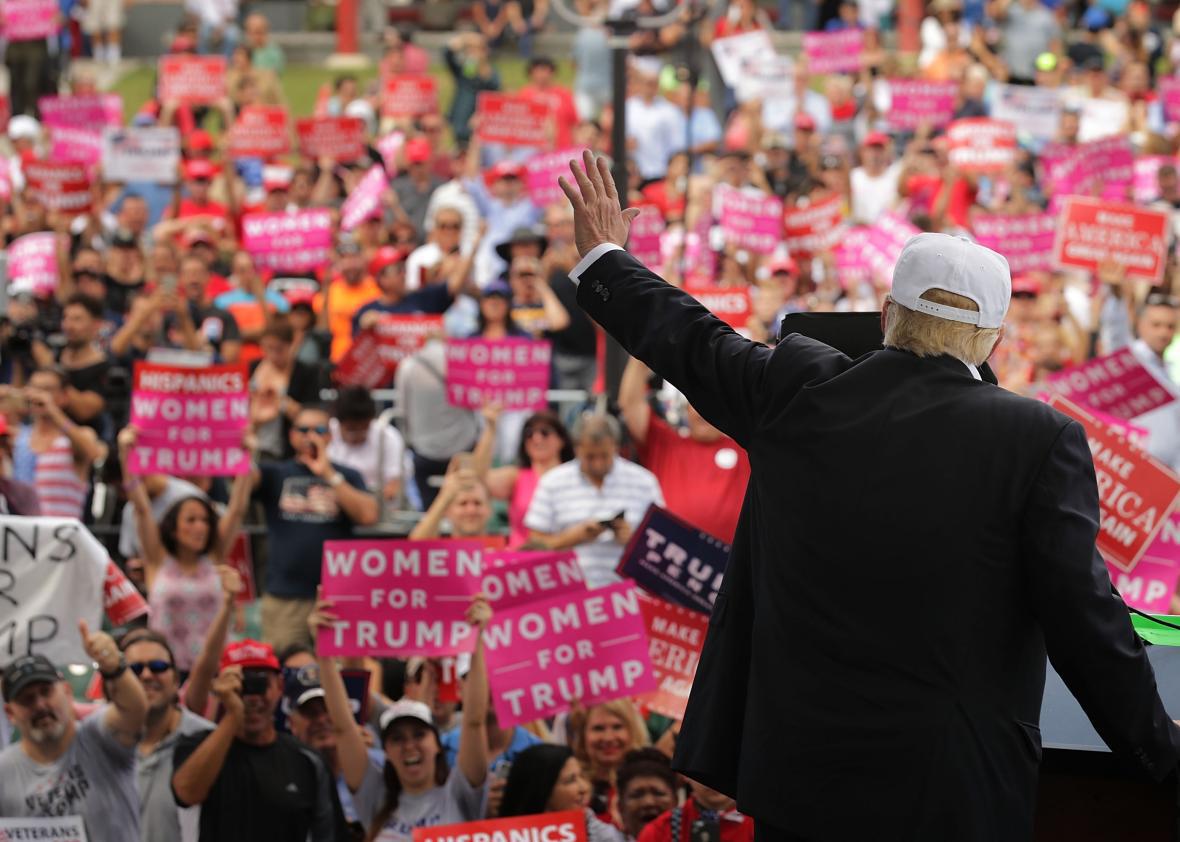There is a difference between a Trump voter and a Trump supporter. To those who will be most endangered by Trump’s presidency, this distinction may not seem so important. But to those on the left who are looking to build a coalition that will keep this from happening again, it’s important to recognize that a good chunk of the people who cast their ballots for Trump can be won back.
As a queer Mexican American who grew up in a small, rural, mostly white town in Oklahoma, I know people who voted for Trump while holding their noses. They inhaled news, oftentimes fake, calling Hillary a criminal and describing her as out of touch. Trump, while certainly uncouth, seemed a viable alternative, and it didn’t hurt that he tapped into nativism and racism lurking just beneath the surface.
Difficult conversations must be had with these people, many of whom voted for Obama in 2008 and 2012. I’ve seen calls for people to confront their family members who voted for Trump at Thanksgiving. I’ve also seen it said that we shouldn’t delete friends on Facebook who voted for him, that liberals need to exit their echo chambers.
But that gives rise to the question: Who will be the ambassadors? Who, among the left, should go about the work of “reaching out?” What we shouldn’t do when determining the answer is erase the complicated dynamics of privilege, lest we, in our hurt and genuine desire to reorganize, put already vulnerable people in harm’s way.
Asking a person of color to reach out to white Trump voters at a time when racist attacks are flaring up is deeply negligent of the very real fears these communities have at the moment. Some of these communities, like Muslims, like Latinos, have effectively just been told they don’t matter by a decent chunk of America. Putting the onus on them to “reach out” is as tone-deaf as it is unproductive.
And while it may seem tempting to ask all white people to confront their family members this Thanksgiving, we have to remember that some of these people are LGBTQ and it simply isn’t safe for them to do. The high rate of homelessness among LGBTQ youth is an extreme example of how toxic and violent some households are for LGBTQ people, but for most, it’s somewhere in-between: Whether queers are officially out or not, going home often requires some kind of closeting as a matter of emotional, if not physical, well-being.
Asking people like that, even if they are white, to confront their families’ politics is a tall order.
None of this is to say that people of color and LGBTQ people shouldn’t confront or engage with Trump voters. If they can, they should. But what is clear is that, by and large, most Trump voters were straight, white people. What we need are leftists with similar privileges to be the ambassadors for this dialogue. The ultimate goal is an intersectional, competitive left that is able to address class issues without it coming at the expense of anti-racism efforts or LGBTQ rights. It’s possible. These people have all been under the same tent before, and they will again.
But marginalized communities have been speaking out for decades, and we have worked too hard and come too far for our human rights to be categorized as “cultural issues,” as some have dubbed them, and tossed aside. It’s time for those who consider themselves allies to put their money where their mouth is and have these conversations. This is what allies are for, and it’s time for our allies to show up and do the work.
